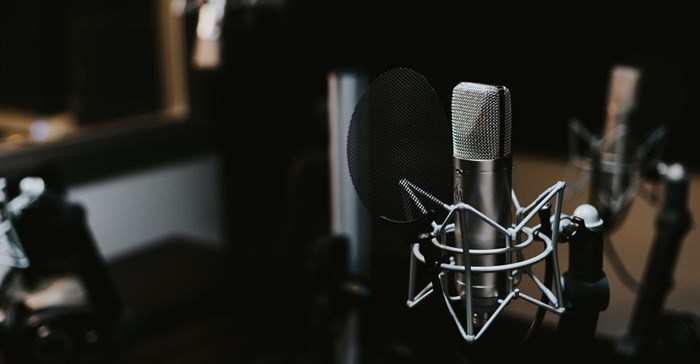
Research also reveals that once users switch to podcasts, they tend to stick to the medium for a long period of time, which makes it the ideal platform to build on a narrative, whether you’re a brand wanting to reach larger business audiences or a podcast host who wants to launch their own platform.
Matt Brown says when he first launched his podcast, The Matt Brown Show, it was to give entrepreneurs and business owners access to in-depth insights from local and international tech and business giants.
But his own entrepreneurial experiences revealed the risk and instability associated with startups, and he was fascinated with disruptive technologies coming to the fore. If he needed a way to stay on top of things, he knew his fellow entrepreneurs did too, or they would run the risk of becoming irrelevant. The solution? A podcast that interviews tech and business giants, delving into their insights and experiences, and shared with listeners in over 100 countries.
“The problem was that as a South African-based podcast host, I only had access to research on my medium that was conducted in the US. As a whole, the stats already confirmed my own experience of podcasting, namely, that podcasts are the single fastest growing medium in the world,” says Brown.
According to The Infinite Dial report, conducted by Edison Research, the 2018 US stats are up from 2017, continuing the growth trend of podcasting. The report states that 64% of Americans have heard of podcasts (that’s more people than people who know who the vice president is), 44% of Americans have listened to a podcast, and one-third of Americans between the ages of 25 and 54 listen to podcasts monthly.
“The stat that really struck home with me though was that in 2018, 6 million more Americans listen to podcasts weekly versus 2017, taking the total up to 48 million people. Podcast fans listen to 40% more shows than last year.
All the trends point up – particularly for people who have already been converted by the medium,” says bROWN.“But that still didn’t tell us what was happening in the South African landscape. We wanted to understand how South Africans consume podcasts and to do that, we needed to conduct our own research.”
The South African Podcast Media Consumption Research Data, Trends & Analysis Report 2018, might help answer a number of key questions, including:
“Our goal was three-fold. First, by gaining a better understanding of our audience and addressable market, we can create content that is relevant and insightful. Second, we want to help brands explore the role of content in their own storytelling, and finally, we want to educate listeners on the benefits of podcasts, since this is a medium that anyone can access for free to improve their own knowledge and industry insights.”
The research was conducted through digital and traditional media partners and validated in the Eastern Cape, South Africa’s poorest region. With 15,682 respondents, the research was balanced to be a representative sample of age, gender, location and ethnicity.
Based on the research, the current addressable market for podcasting in South Africa is approximately 16 million people. “We believe there’s a very specific reason why there’s such a comparatively large addressable market in South Africa, and it comes down to our demographics: With such a rich, diverse culture, consumers are looking for media that speaks directly to them.”In fact, according to the report, most South Africans don’t listen to podcasts simply because they don’t know how to access them on their phones, which means education is a key factor in growing local audiences.
Google search and social media are the primary sources of information related to podcasts. Word-of-mouth is also a key channel of influence when it comes to SA podcast listeners finding new shows. This underscores the importance of producing quality content over quantity.
The research revealed that 80% of South Africans listen to the majority of a podcast. Once consumers are engaged, there is a stickiness factor to the medium that represents big opportunities for narrative-based, branded content for brands and sponsored content for podcast producers.
Most South African podcast listeners also listen to a podcast within 24 hours of download. This indicates that consumers perceive podcasts to be of high value to them, as they want to consume the content almost immediately.
The most popular type of podcasts are entertainment-based (at 56%), with ‘real-time information’ orientated podcasts coming in at 47% and learning and information at 40% respectively. “In my own experience, the sweet spot for most podcasts is ‘edutainment’ – entertaining content that also serves to increase knowledge and skills,” says Brown. “The top-ranking podcasts in the US support this as well.”
Respondents are split equally over whether they prefer listening to the radio or podcasts. This supports the consumer perception that podcasts are an extension of traditional radio, although podcasts represent new opportunities for narrative-based storytelling.
Most podcast listeners are employed full-time. This indicates that the profile of the typical South African podcast listener is LSM 7-10.
From an education perspective, podcasts represent a significant opportunity to drive the informal learning agenda across South Africa. 43% of podcast listeners are highly educated, which implies information access is the key driver of consumption for this segment.
In South Africa, the primary podcast listener is aged between 35 and 54 (in line with US stats), with the secondary listener aged between 25 and 34. The majority of podcast listeners have a household income of between R100,000 and R1m.